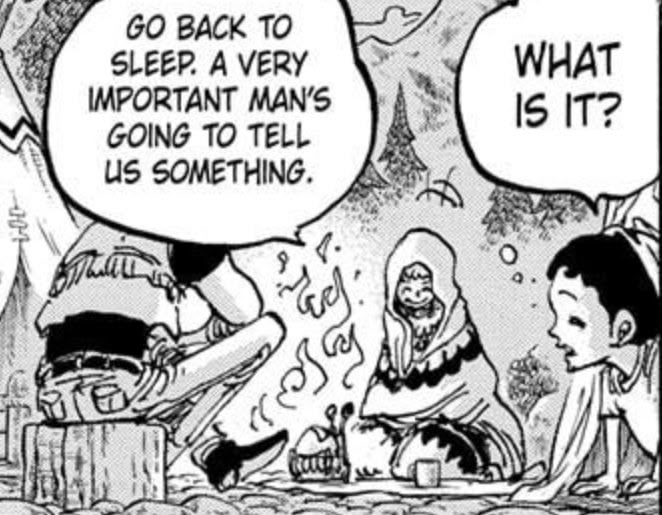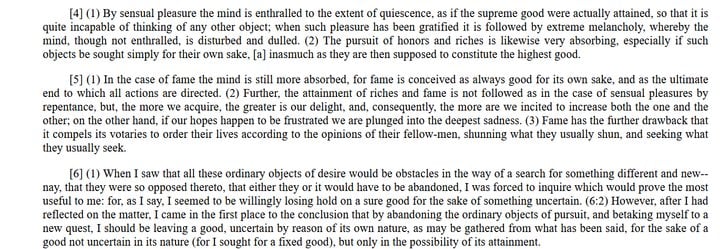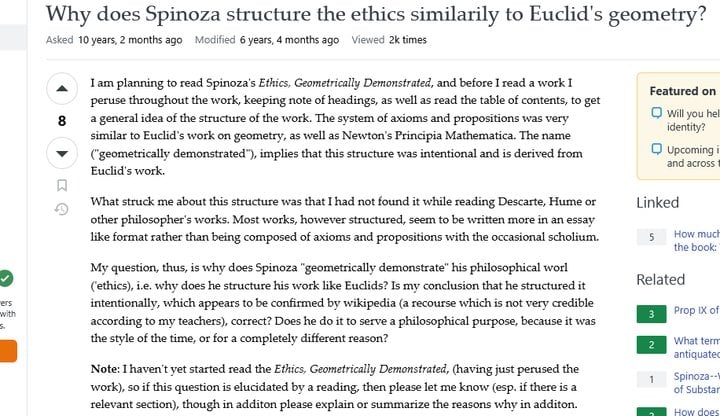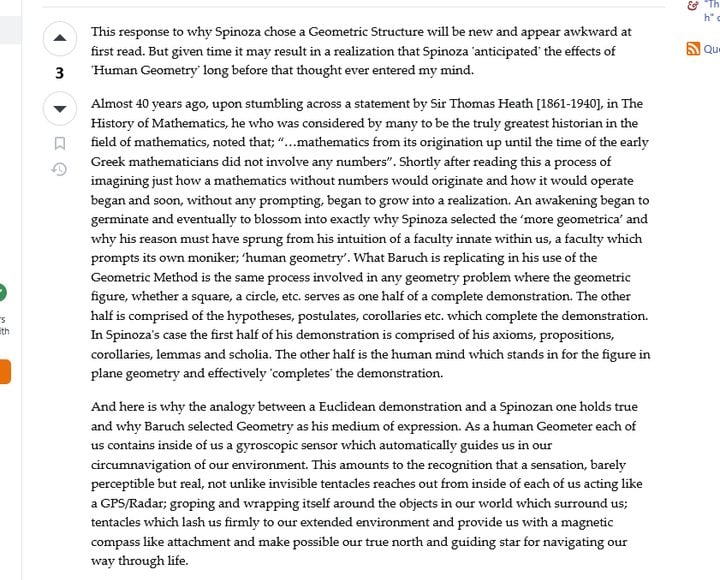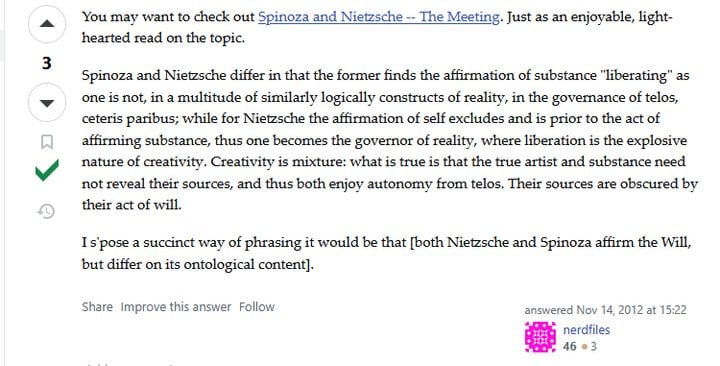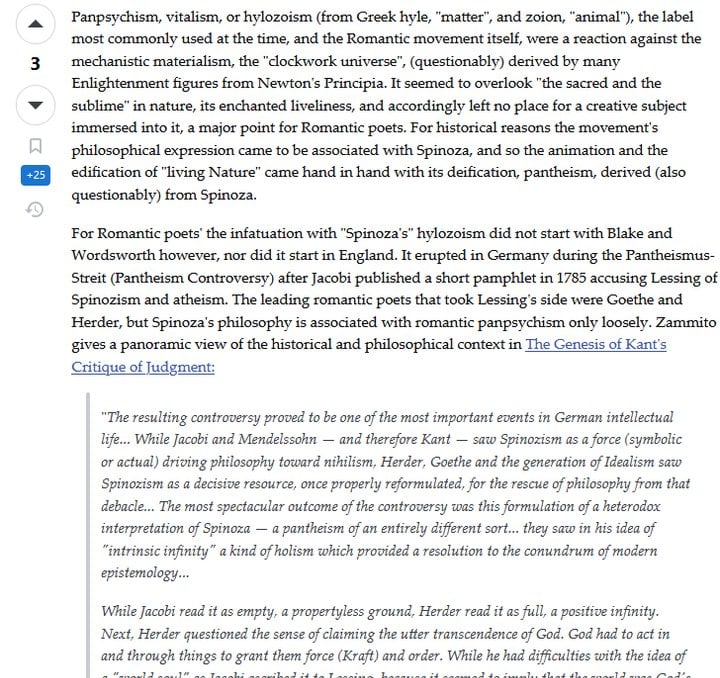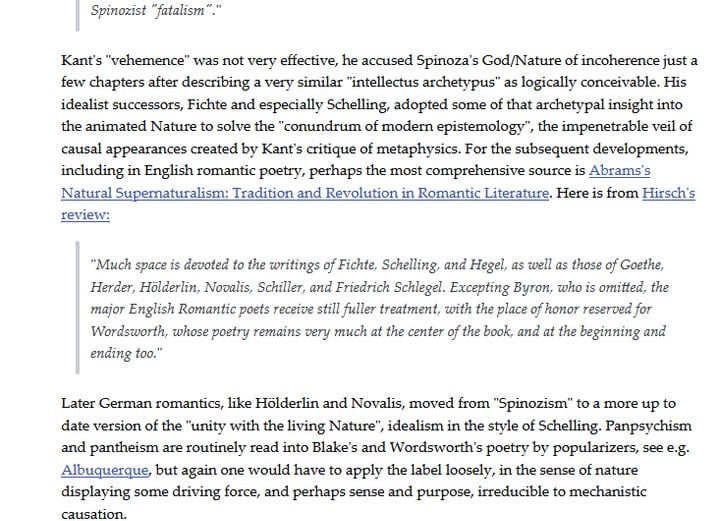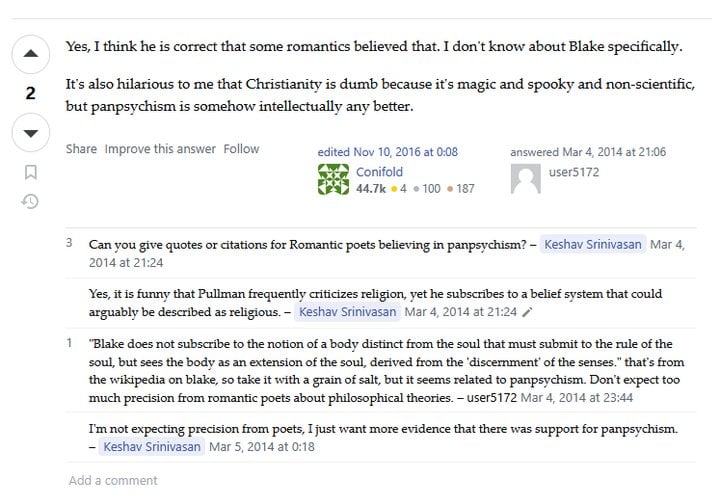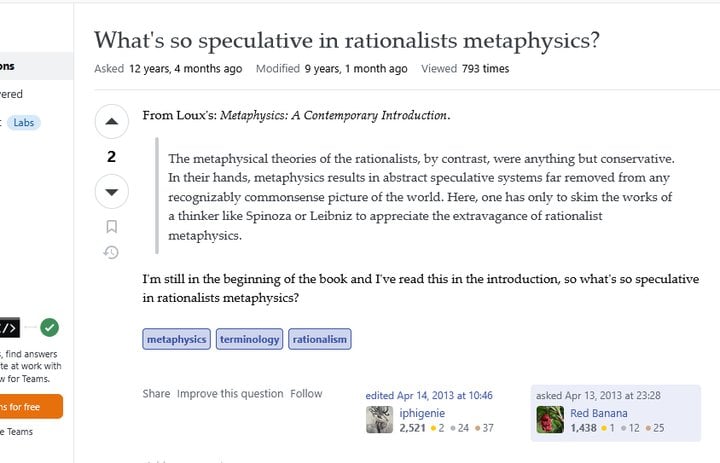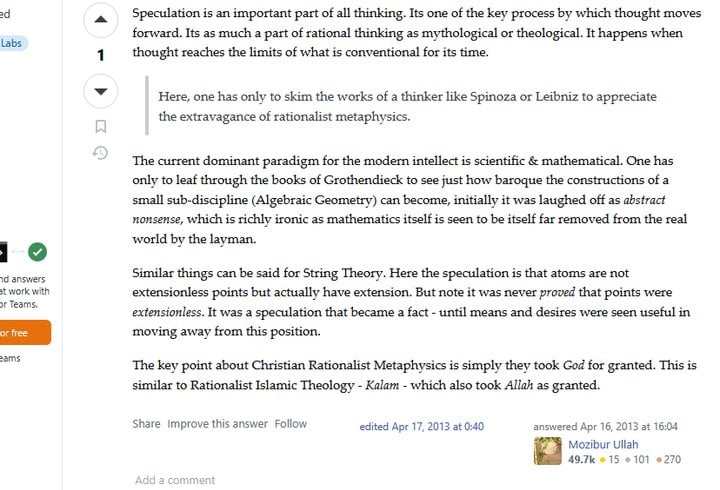The Prequel #5
"The resulting controversy proved to be one of the most important events in German intellectual life... While Jacobi and Mendelssohn — and therefore Kant — saw Spinozism as a force (symbolic or actual) driving philosophy toward nihilism, Herder, Goethe and the generation of Idealism saw Spinozism as a decisive resource, once properly reformulated, for the rescue of philosophy from that debacle... The most spectacular outcome of the controversy was this formulation of a heterodox interpretation of Spinoza — a pantheism of an entirely different sort... they saw in his idea of "intrinsic infinity" a kind of holism which provided a resolution to the conundrum of modern epistemology...
While Jacobi read it as empty, a propertyless ground, Herder read it as full, a positive infinity. Next, Herder questioned the sense of claiming the utter transcendence of God. God had to act in and through things to grant them force (Kraft) and order. While he had difficulties with the idea of a "world soul" as Jacobi ascribed it to Lessing, because it seemed to imply that the world was God's body, he claimed that seen properly, i.e., sub specie aeternitatis, the material world turned simply into the realized reason of God... Kant, learning of this development, applied himself in the Third Critique vehemently to the rejection of Herder's vitalist pantheism as well as to the refutation of Spinozist "fatalism".
...
